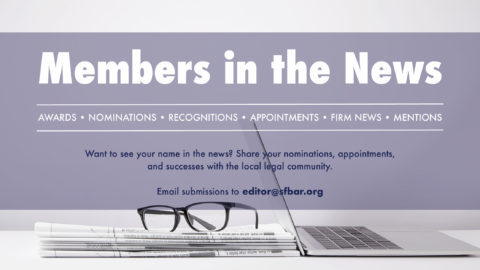The State Bar of California requires attorneys to complete 25 total hours of MCLEs per three-year reporting period, four hours of which must be in legal ethics (Cal. Bar Rule 2.72.). California paralegals are also required to complete four hours of legal ethics—but every two years (Bus. & Prof. Code § 6450). So, in this state, paralegals are required to take more legal ethics classes on an annual basis than the attorneys they work for.
California also requires more of its paralegals than national certifying organizations. The National Association of Legal Assistants (NALA), which awards the Certified Paralegal (CP) designation, requires a minimum of 50 MCLE hours every five years, with five of those hours in ethics—one hour per year. Similarly, the National Federation of Paralegal Associations (NFPA), which awards the PACE® credential, requires 12 MCLE hours every two years, with only one hour being ethics.
Why does the California legislature require more ethics training for California paralegals?
 One reason may be that, unlike attorneys, paralegals are not licensed by the state. While a paralegal must meet the education and training requirements set forth in Bus. & Prof. Code § 6450, there is no formal oversight. Accordingly, also unlike attorneys, paralegals do not take the Professional Responsibility Exam. It should be noted, however, that the exams administered by NALA and NFPA test candidates’ knowledge of legal ethics, and legal ethics are a part of the curriculum of paralegal studies programs.
One reason may be that, unlike attorneys, paralegals are not licensed by the state. While a paralegal must meet the education and training requirements set forth in Bus. & Prof. Code § 6450, there is no formal oversight. Accordingly, also unlike attorneys, paralegals do not take the Professional Responsibility Exam. It should be noted, however, that the exams administered by NALA and NFPA test candidates’ knowledge of legal ethics, and legal ethics are a part of the curriculum of paralegal studies programs.
Further, while paralegals must be aware of and comply with the same ethics rules that apply to attorneys in areas like competence and confidentiality, one critical ethical issue applies more directly to paralegals: prevention of the Unauthorized Practice of Law (UPL), which is not only unethical, but illegal (Bus. & Prof. Code § 6126).
In general, paralegals should not establish attorney-client relationships, set legal fees, give legal opinions or advice, represent a client before a court, nor engage in, encourage, or contribute to any act that would constitute the unauthorized practice of law.
For more details on avoiding UPL, paralegals—and their attorney supervisors—are encouraged to get a refresher on this critical area by watching “Legal Ethics: How to Identify and Prevent Unauthorized Practice of Law,” an online replay of an MCLE class that was offered by the Paralegal Section in 2016, available at www.sfbar.org/onlinecle (search Paralegal).
Avoiding UPL is a topic that should concern attorney supervisors since they are responsible for ensuring their paralegals’ compliance with all ethical obligations. Attorneys who permit or encourage their paralegals to engage in the unauthorized practice of law can face serious consequences, including incurring civil liability to any client damaged by the negligence of the offending paralegal, and even disbarment. So there are good reasons why paralegals are required to outpace their attorneys when it comes to ethics MCLEs. The Paralegal Section is dedicated to providing opportunities for Bay Area paralegals to meet these requirements.
Daniel B. Pleasant, ACP, is treasurer of the Executive Committee of BASF’s Paralegal Section and a writer and editor at Rouda, Feder, Tietjen & McGuinn. He was certified by the National Association of Legal Assistants in 2002 as a Certified Paralegal, and has earned advanced certification in discovery, trial practice, and California civil procedure. Pleasant focuses on writing mediation briefs, drafting motions and appellate briefs, and preparing cases for trial.



